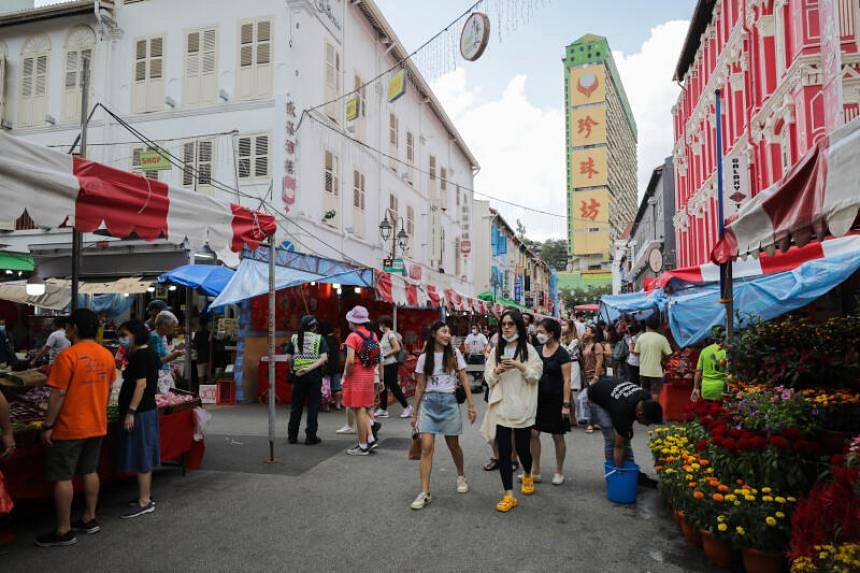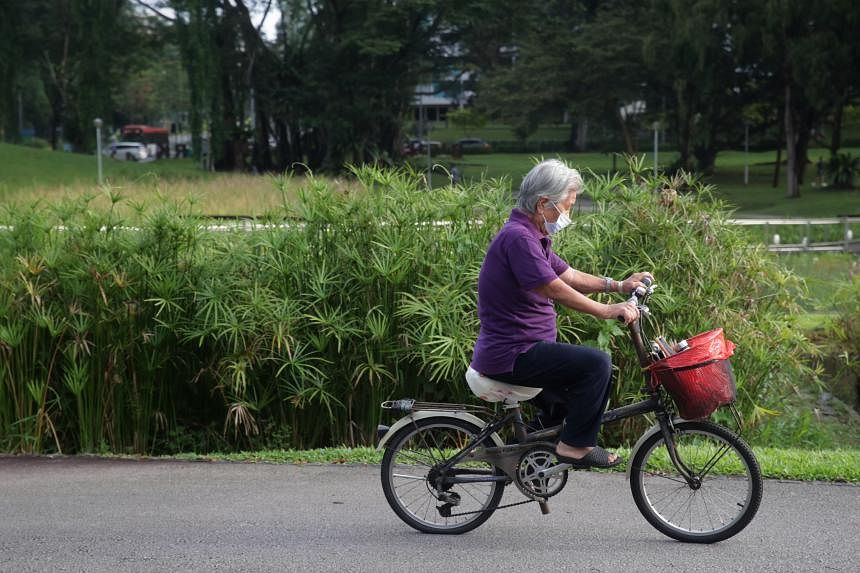from straitstimes.com:
Action plan to help older Singaporeans live well as they age and work longer
The Live Well, Age Well programme is part of Singapore’s new action plan for successful ageing. ST PHOTO: GIN TAY
Joyce Teo
Senior Health Correspondent
UPDATED
30 JAN 2023, 10:38 PM SGT
FacebookTwitter
SINGAPORE – Singapore will reach out to more than half a million of its older adults over the next five years through a programme that empowers them to improve and maintain their health as they age.
The Live Well, Age Well programme, run by the Health Promotion Board and People’s Association, is part of the Republic’s 2023 action plan for successful ageing, which also includes efforts to keep older people employed for longer and stay connected with their loved ones.
The revised plan, an update of the 2015 Action Plan for Successful Ageing blueprint, was launched on Monday by the Ministerial Committee on Ageing – helmed by Health Minister Ong Ye Kung – at the Ci Yuan Community Centre in Hougang.
Mr Ong called ageing “the most significant social development in Singapore” as the nation redoubles efforts to enable its seniors to lead healthy, secure and more fulfilling lives.
It is estimated that by 2030, one in four people here will be 65 and above, as
Singaporeans are living longer and having fewer babies. More seniors will also be living alone.
The Live Well, Age Well programme, which targets people aged 50 and above, offers activities such as group exercise sessions and educational sessions on mental well-being. It is being gradually introduced in community clubs and active ageing centres.
Mr Ong said he hopes older adults will also enrol in the
Healthier SG initiative, which starts this year and emphasises preventive care such as linking seniors with a family doctor who will help develop a personalised care plan for them.
Under the action plan, a credit scheme to support the hiring of older workers will be extended to let seniors work longer by providing wage offsets for companies that employ workers aged 60 and up who earn up to $4,000 a month.
The Government will also extend the part-time re-employment grant, with revised criteria, from 2023 to 2025.
Singapore raised the retirement age of workers here from 62 to 63 and the re-employment age from 67 to 68 in 2022. The target is to
increase the retirement age to 65 and the re-employment age to 70 by 2030.
The planning for an ageing population started years back.
In 2015, when one in eight people was aged 65 and older, the Government unveiled the $3 billion Action Plan for Successful Ageing after it sought the views and aspirations of Singaporeans on the issue.
That plan focused on creating opportunities for seniors to learn, volunteer and live independently.
The 2023 revised action plan focuses on community initiatives.
It aims to keep abreast of the evolving needs of a growing pool of older adults and comes after 40 engagement sessions involving more than 5,000 Singaporeans.
It has three thrusts – care, contribution and connectedness – to help Singaporeans live life to the fullest.
Care is about empowering seniors to take charge of their health through preventive measures, active ageing programmes and care services, with efforts on managing dementia, and helping more Singaporeans live out their lives at home rather than in hospitals.
Seniors will also get support to contribute their knowledge and expertise, learn continuously and engage in volunteerism.
They will be able to stay connected with society and their loved ones as more therapeutic gardens are set up, for instance.
Speaking at the launch of the action plan on Monday, Mr Ong said: “While ageing is a demographic fact, rapid deterioration of health need not be a given… Covid-19 has taught us that with the right preventive steps – through diet, exercise, wearing a mask when you have to, regular health screening, staying mentally healthy and happy – we can stave off frailty and severe diseases for as long as possible.”
At the same time, there is also a need to strengthen support systems to enable ageing in communities, rather than in institutions.
He said: “In communities, our seniors are more likely to have friends, loved ones and activities to engage in. These are the best therapies to help them stay healthy and avoid frailty.”
Mr Ong also held a panel discussion with Minister for National Development Desmond Lee, Minister for Manpower Tan See Leng and National Trades Union Congress secretary-general Ng Chee Meng, who are all members of the Ministerial Committee on Ageing.
“The most encouraging aspect of the successive action plans for successful ageing is the fact that they emphasise ground-up initiatives and collaborations, and active participation by all,” said Mr Ong.
He said the report does not contain a typical narrative of only what the Government is doing to promote successful ageing, but also includes what society is doing.
“You will find examples of programmes implemented not just by ministries and government agencies, but also by corporations, charity organisations and communities. Ageing is, after all, a societal phenomenon requiring a societal response,” he said.



































